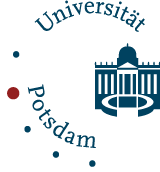The Right to Research
Displaced people are rarely perceived as researchers in their own right. This conversation, which takes place between historians with and without forced migration backgrounds who work together as co-authors, editors, and contributors, explores what it means to become a researcher and what some of the challenges facing displaced scholars are.
You can purchase the book "The Right to Research" here.
Read more about the topic in this blog post: The Right to Research: A Conversation between Emplaced and Displaced Scholars .
Podcast
In the first-ever podcast episode, LERRN host İrem Karabağ talks with book editors Professor Marcia C. Schenck and Kate Reed, and book contributor Ismail Alkhateeb of the anthology The Right to Research: Historical Narratives by Refugee and Global South Researchers, published in 2023 with McGill-Queen’s University Press in their forced migration studies series.
Click here to listen to the podcast.
In this interview, Ismail Alkhateeb, a Syrian translator and women's rights activist, talks about his motivations and contributions to the book The Right to Research.
Click here for the clip.
Gerawork Gizaw, academic advisor under a Jesuit Worldwide Learning (JWK) tertiary-level education program, with Dr. Staci B. Martin, discusses his research in the Kakuma Refugee Camp as part of the Global History Lab and Global History Dialogues Project.
Click here for the clip.
Muna Omar, health and humanitarian leadership specialist, discusses speaks her research on Eastern African migration to the Arabian Peninsula with Gina D'Alesandro.
Click here for the clip.
The co-editors of The Right to Research, Kate Reed and Marcia C. Schenck discuss this new research anthology from the MQUP Forced Migration Studies Series with Jeremy Adelman, professor of History and the director of the Global Histroy Lab at the Princeton University.
Click here for the clip.
You can access the virtual Book Launch of The Right to Reasearchhere at any time.

